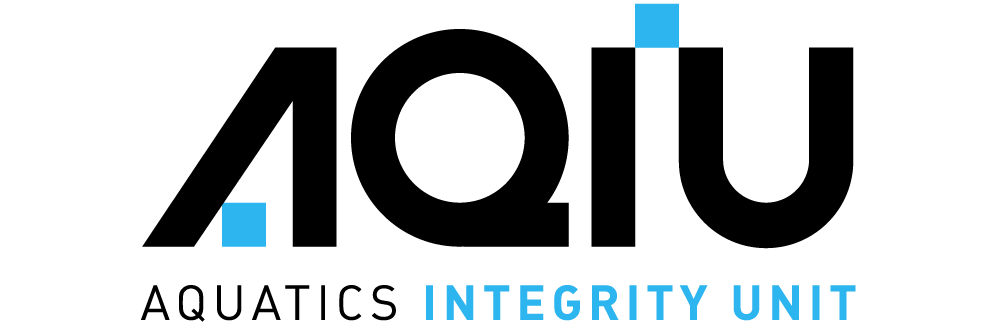Anti-Doping
Introduction to anti-doping
The use of doping substances or doping methods to enhance performance is fundamentally wrong and is detrimental to the overall spirit of sport. Drug misuse can be harmful to an Athlete’s health and to other Athletes competing in the sport. It severely damages the integrity, image and value of sport, whether or not the motivation to use drugs is to improve performance.
To achieve integrity and fairness in sport, a commitment to a clean field of play is critical. World aquatics seeks to maintain the integrity of aquatics by running a comprehensive anti-doping program that focuses equally on education/prevention and on testing, with consequent sanctioning of those who break the rules.

Principles and values of clean sport
Anti-doping programs seek to maintain the integrity of sport in terms of respect for rules, other competitors, fair competition, a level playing field, and the value of clean sport to the world.
The spirit of sport is the celebration of the human spirit, body and mind. It is the essence of Olympism and is reflected in the values we find in and through sport, including:
- Health
- Ethics, fair play and honesty
- Athletes’ rights as set forth in the Code
- Excellence in performance
- Character and Education
- Fun and joy
- Teamwork
- Dedication and commitment
- Respect for rules and laws
- Respect for self and other Participants
- Courage
- Community and solidarity
The spirit of sport is expressed in how we play true. World Aquatics embodies these values – we believe in a clean and fair field of play, and doping stands in direct contradiction to what aquatics represents.
Our goal is to empower all athletes to stay on top of their game – not just athletes, but coaches, administrators, medical personnel and all other members of the athlete entourage. We encourage everyone to take the time to review this section and get informed.
Why is anti-doping important?
Doping Control Rules exist for the same reason the other World Aquatics rules and regulations exist, which is to define different aspects of the sport in order to maintain excitement and to ensure fairness on the field of play. All rules and the fact that they are monitored and reinforced are designed to prevent any participant from taking an unfair advantage over another.
The use of doping substances or methods to enhance performance is not only wrong, but are also harmful to Athletes’ mental and physical health.
What is doping?
According to the World Anti-Doping Code and the World Aquatics Doping Control Rules, doping is defined as the occurrence of one or more of the following Anti-Doping Rule Violations (ADRVs). Most commonly, this means a presence of a prohibited substance in an Athlete’s sample collected during Doping Control.
However, it’s not just a positive test that can result in a sanction. In fact, there are 11 Anti-Doping Rule Violations:
- Presence of a prohibited substance in an Athlete’s sample
- Use or attempted use of a prohibited substance or method
- Refusal to submit to sample collection after being notified
- Failure to file Athlete whereabouts information & missed tests
- Tampering with any part of the doping control process
- Possession of a prohibited substance or method
- Trafficking a prohibited substance or method
- Administering or attempting to administer a prohibited substance or method to an Athlete
- Complicity in an ADRV
- Prohibited association with sanctioned Athlete Support Personnel
- Discourage or Retaliate other Persons from reporting relevant Anti-Doping information to the authorities.
Who is subject to the Doping Control rules?
The first four Anti-Doping Rule Violations on the above list apply only to Athletes since they refer to the obligation not to take banned substances and the obligation to submit to testing. However, the remaining seven types of ADRVs apply to both the Athletes and the Athlete Support Personnel, such as coaches and team doctors, or anyone else working with the Athlete. National and International Federation administrators, officials and sample collection staff may also be liable for their conduct under the World Anti-Doping Code.
Simply put, everybody involved in aquatics must respect the World Anti-Doping Code and may be liable for committing an Anti-Doping Rule Violation.
Who governs anti-doping?
The World Anti-Doping Agency (WADA) is the independent international body responsible for harmonizing anti-doping policies in all sports and all countries. The World Anti-Doping Code (Code) is the core document that harmonizes anti-doping policies, rules and regulations within sport organizations around the world. The Code is supplemented by 8 International Standards, including the Prohibited List that is updated at least annually. The standards can be found here.
As a Signatory of the World Anti-Doping Code, World Aquatics is responsible for implementing an effective and Code-compliant anti-doping program for the sport of aquatics.
World Aquatics has therefore delegated the management of its clean sport activities to the International Testing Agency (ITA), an independent organisation that manages anti-doping programs on behalf of International Federations and Major Event Organisers.
World Aquatics’ anti-doping program is not limited to doping controls, it also includes activities like Risk Assessment, management of Therapeutic Use Exemptions (TUEs) for international-level Athletes, Results Management and Education.
Check out the International Testing Agency’s website to learn more about their services.
